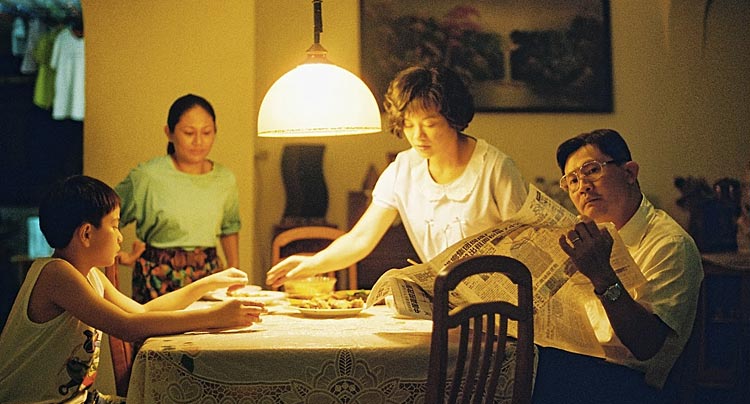
Packs an impressive emotional punch despite the rather concise and familiar storyline.

Packs an impressive emotional punch despite the rather concise and familiar storyline.
Singapore born director Anthony Chen makes an impressive feature debut with Ilo Ilo, which not only received the Camera d’Or award at Cannes, but it was also Singapore’s official Foreign Language submission to the Oscars. Set during the late-90s financial crisis in Asia, Ilo Ilo observes a Singaporean family trying to overcome parental and financial woes. It’s a simple story told with a lot of heart that contains hardships that resonate worldwide: parenting struggles, surviving a financial crisis, and putting your family over personal problems.
Despite the weak economy surrounding the Asian financial crisis, the Lim family finds it necessary to hire a live-in maid named Teresa (Angeli Bayani) for a couple of reasons. Apart from simply relieving the pregnant mother Hwee Leng (Yann Yann Yeo) of household chores, Teresa is also hired to keep their troublemaking young boy Jiale (Koh Jia Ler) in line. From the moment Teresa introduces herself to the family, Jiale grumbles about having to share a room with her, immediately establishing the divided connection between the defiant boy and the maid.
Over time the animosity between the two wears thin as Teresa earns respect from Jiale when she doesn’t put up with his rebellious antics. But not everyone takes to her charisma. Jealousy settles in when Hwee notices her son getting along with the maid better than his own mother. But instead of caving into her initial reaction of feeling replaced as a mother, she understands how much Jiale needs the extra attention. And as if that wasn’t enough for a vulnerable pregnant mother to handle, the news of her husband losing his job hits at the most inopportune time. The camera remains glued to its subjects, focusing on their reactions and attention to details while simultaneously building a hefty amount of emotional tension.

The chemistry between the characters is genuinely felt due to the outstanding performances from everyone involved. The bulk of the weight is put on Bayani’s shoulders as she receives an unwelcome greeting into the family and must stand up for herself without overstepping her bounds. But it’s the youngest actor in Ilo Ilo who makes the biggest slash. And that’s not just because he enjoys water fights in the shower. It’s Koh Jia Ler who somehow makes his bratty, misbehaved character remarkably sympathetic and impossibly endearing. When the youngster takes a break from wreaking havoc on those around him, his thoughtful and caring side is finally exposed. The film certainly wouldn’t have been nearly as heartwarming if these two performers weren’t at the top of their game.
The characters in Ilo Ilo may be speaking in a foreign language, but the themes found within the film are universal. Watching a family try to survive by putting their own problems aside is without a doubt endearing to witness. Thus, Ilo Ilo packs an impressive emotional punch despite the rather concise and familiar storyline. Just about everything about the film can be described as subdued—the muted color saturation, quietness from the lack of score, the restraint pacing of the film—though the overall poignancy of the film is anything but submissive.